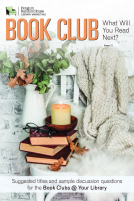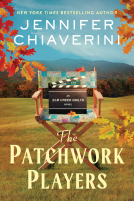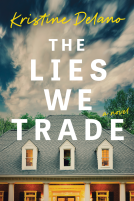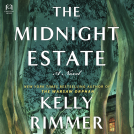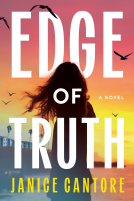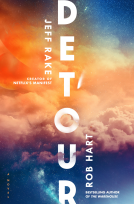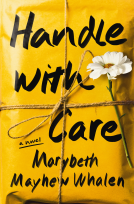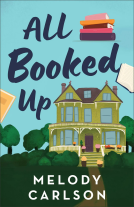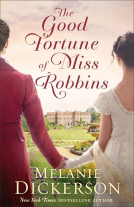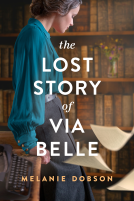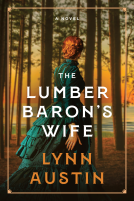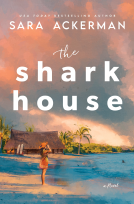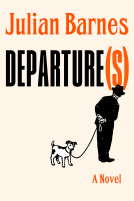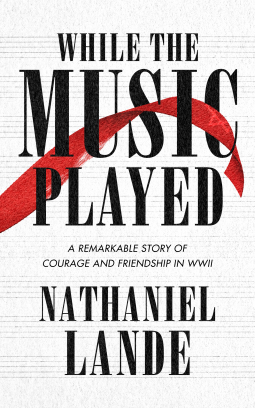
While The Music Played
A Remarkable Story of Courage and Friendship in WWII
by Nathaniel Lande
This title was previously available on NetGalley and is now archived.
Send NetGalley books directly to your Kindle or Kindle app
1
To read on a Kindle or Kindle app, please add kindle@netgalley.com as an approved email address to receive files in your Amazon account. Click here for step-by-step instructions.
2
Also find your Kindle email address within your Amazon account, and enter it here.
Pub Date May 12 2020 | Archive Date Jul 02 2020
Talking about this book? Use #WhileTheMusicPlayed #NetGalley. More hashtag tips!
Description
It is 1939, in prewar Prague, and Max Mueller, a budding musician, piano tuner, and nascent journalist, is on the cusp of adolescence, as the Nazi influence begins to invade the city’s tolerant spirit with alarming speed. As everyone Max loves is compromised by intolerable conditions, his world grows increasingly conflicted. Music is the one constant connecting him to both his lost childhood and the man he still hopes to become. But will it be enough to sustain him against the relentless Nazi threat?
Blending historical and fictional characters and sweeping across Prague, London, and Berlin, as World War II rages, this meticulously researched novel is unique with diverse narratives, threaded with news accounts, and encompassing some of the most triumphant and devastating moments of the war—from the opera houses of Berlin to the music halls of London and the making of the famous children’s opera Brundibár.
While the Music Played is a lyrical, absorbing, and heartbreaking story of love and courage from the widely revered and bestselling author Nathaniel Lande.
A Note From the Publisher
Advance Praise
“Nathaniel Lande has written an epic, compelling and cinematic, richly imagined, often chilling but ultimately life-affirming tribute to the power of music and art, honoring the human spirit.”
-Richard Zoglin, contributing editor, Time Magazine
“Lande’s gripping debut entwines a complex set of relationships brought together by music and disrupted by the Nazis…Lande describes the Nazis’ appreciation for music in stark irony, as Max’s initial respect for a camp commandant’s perfect pitch turns to horror when he learns of the gas chambers. This is a fine addition to the shelf of WWII fiction.”
-Publishers Weekly
“The horrors of the Nazi domination of Europe are seen through the eyes of a son of a famous Czech conductor, whose fictional life is symbolized by a piano tuners red ribbons, interweaves with some of the most important figures of his time. At the heart of the story is the shining light that was Hans Krasa, the creator of the children’s opera, Brundibar, that was used by the oppressors to deceive the world to the true nature of the ‘model’ concentration camp, Tererinstadt. The vast panorama of the war is covered in intimate, yet in epic proportion, (newspaper dispatches with historical accuracy are a remarkable device threading the novel) as the truth slowly dawns on what will befall a civilized and gentle people trapped by hatred and a twisted ideology. The reader is not spared: amazing characters lose their lives, many suffer intolerable circumstance, others live to inspire. Motives and behaviours are—just as in life—kept obscure until the final chapters, when the touchtones from Mark Twain, inspire a flight to freedom. Throughout, the powers of music and Nathaniel Lande’s beautifully written words provide evidence that, even in the darkest times, man’s creativity shines through. While the Music Played is a compelling novel, with brilliant characters never to be forgotten and long remembered.”
-Dr. Andrea Tanner, senior fellow, Institute of Historical Research, University of London
“Through an epic WW2 landscape following the footsteps and footfalls of young Max Mueller and David Grunewald, master storyteller Nathaniel Lande has unleashed a moving novel for a new generation of readers. Hans Krasa, the great Viktor Mueller, and Frau Schmidt are memorable characters that seem to jump off the pages, looking to find their way onto a cinematic screen.”
-Valcav and Zdena Flegl, senior correspondents, Český rozhlas, Czech Radio Prague
Marketing Plan
National and regional reviews and features
Print and digital advertising
Fiction buzz mailing
Social media campaign
Bookseller and library show marketing
National and regional reviews and features
Print and digital advertising
Fiction buzz mailing
Social media campaign
Bookseller and library show marketing
Available Editions
| EDITION | Hardcover |
| ISBN | 9781982632335 |
| PRICE | $29.99 (USD) |
Average rating from 16 members
Featured Reviews
 Emily S, Reviewer
Emily S, Reviewer
I felt this started off slow but once Max starts to tell his story I was hooked. Aww, poor Max, I was so desperate to find out what happened to him and his lovely friends and family. Pre war Prague seemed like a lovely place to be. I am not a massive classical music fan but it was lovely how music seemed to bond everyone together. It would have been great to have a list of all the music mentioned or even a Spotify playlist!
I started looking up some of the characters about halfway through to see if they were real. I was thrilled to find out that some of them were, but it unfortunately meant that I found out their fate.
I learnt a lot from this book and became very attached to the characters, a box of tissues might be a good idea throughout the book, especially the last quarter or so. I can't rate this book highly enough and will be recommending to everyone I know!
 Sue A, Reviewer
Sue A, Reviewer
Nathaniel Lande’s While the Music Played skillfully blends historical figures and fictional characters. Like several recent popular World War II novels, it introduces elements of the underground resistance. However, while important, those elements remain secondary. Instead, Lande dramatizes how the arts, especially music, helped created moments of hope during a time of despair. Although the central plot involves music—the children’s opera Brundibár, the author also alludes to classical pieces and popular songs, works in several apropos lyrics, and employs artful music imagery.
The story comes to us through several points of view, including a British female reporter, a German-Czech orchestra conductor, and his young son, who is twelve when Germany annexes Austria and Czechoslovakia.
Early in the novel, readers first encounter Max, now an adult, listening to a performance of Giuseppe Verdi’s Requiem during the tenth anniversary commemoration of the war’s end. Overwhelmed by his memories, Max flees the sanctuary, haunted by thoughts of childhood friends David and Sophie. He recalls how three had vowed to save one another and how the others had changed his life. “This is how it was. This is how it all began,” he explains as he begins telling about his idyllic boyhood in Prague as son of “The Great Viktor Mueller,” his flamboyant hero who could turn any moment into a celebration.
We meet Max’s talented friends David and Sophie, his father’s former conservatory classmate named Hans Krása, and a visiting British reporter named Anna Kingsley. We spend time sitting in concert halls, marching through the streets with Viktor, Max, and Max’s classmates, each playing an instrument, watching Max’s budding interest in the news, which leads to his job delivering papers for Sam Raggle, who runs the newsstand, and listening to Viktor regaling Max with tales of “The Distant and Mysterious Man,” Armand Duval, whose mission it was to travel the world collecting emeralds to give to the poor.” Little did Max know that he would soon need to discover his own life’s mission.
When Conductor Mueller becomes Major Mueller, cultural program director for the Reich, Max’s world is turned upside down. Max, David, Sophie, composer Hans Krása, artist/architect Norbert Troller, film maker Kurt Gerron, and Rabbi Leo Baeck find themselves in a darker reality at Terezín (Theresienstadt), doing their best to bring moments of light through their music, art, and teaching.
Having already mentioned Lande’s music allusions and imagery, I cannot fail to mention the literary allusions and quotations, ranging from Tennyson to Twain, also scattered throughout the novel. Much as music influences the characters’ lives, so do the words of a few of our greatest writers.
The author’s notes and photos at the end of the novel provide a useful, valuable supplement.
Thanks to NetGalley, Blackstone Publishing, and Nathaniel Lande for providing me with an Advance Reader Copy of this highly recommended contribution to Holocaust fiction.
 Linda Z, Reviewer
Linda Z, Reviewer
Kudos to Nathaniel Lande, author of "While The Music Played" for writing such a poignant, unforgettable, heartbreaking, and emotional book. The genre for this novel is Historical Fiction, and this is " A Remarkable Story of Courage and Friendship in WWII."(cover) The timeline for this story is just before World War Two in 1939 Praque, and then during the war. This is a coming of age book during a tragic and devastating time in history. The author describes many of his characters as courageous, brave, and talented. There are characters that are also very evil. Some of the described settings are in Concentration Camps.
I appreciate that Nathaniel Lande vividly describes his characters and events, and the influence of music and art during this time. The music and art live long after the characters are gone, but not forgotten. The Arts provide historical documentation of sorts. There is clearly a tremendous amount of research that has been done in preparation for this book.
Max Mueller is almost a teenager, has a distinct ear for piano tuning, and has a desire to be a newspaper reporter. His father Viktor Mueller is a renowned conductor. Many of Max's friends are Jewish. As Nazism spreads, and Max's father is sent into the German Army, Max becomes conflicted and confused. His father's friend, Hans Krasa, a famous Czech composer and influences some of what Max is thinking. Max doesn't understand the discrimination, antisemitism, and hatred that surrounds him. Music is one thing that seems to keep Max grounded. As the German Nazi's take over, Max has to deal with deceit, destruction, damage, and grief.
I would recommend this heartbreaking novel to those readers who read Historical Fiction and appreciate a thought-provoking book. Be sure to have some Kleenex on hand.
 David M, Reviewer
David M, Reviewer
What an exquisitely told historical fiction novel!. Starting in 1939 Prague and encompassing WWII and the rise of Nazism, young Max Mueller must navigate life and coming-of-age in the most dire of circumstances. Soon after the Nazi invasion, Max's father, a renowned German composer, is conscripted into the German army and finds himself torn between doing what's expected of him while also keeping Max safe. All of those closest to Max are Jewish and he struggles to understand what's happening all around him. Told from multiple points of view with historical as well as fictional characters, I found this to be one of the most compelling coming-of-age stories I've ever read. With family, friendship, love and music at its core, this one is about hope and the unflappable human sprit. Often cinematic, the scenes are richly described and put you in the middle of the action. The fictional characters are so fleshed out that you don't really think they're fictional at all. Lots of research went into writing this story and the blending of the real life characters with the fictional ones is seamless.
There have been plenty of historical WWII novels written over the last few years but none are as original and heartfelt as this one. I can't recommend this book highly enough and if you're a fan of the time period (and even if you aren't) I implore you to pick this one up, it's that good!
This is a beautifully written, well researched novel about WWII told through the eyes of Max who is a teenager when the novel begins but becomes part of the resistance as the Nazi regime takes over his country. Max and his friends and family all connect through music - at times it is the only way they can keep their sanity in their world gone crazy.
1939 in Prague - Max Mueller lives with his father Viktor, a world famous conductor. He isn't Jewish but has been taught to respect everyone no matter what their religion or heritage. He and his father are very close and his father has instilled the love of music into him and he has become a pianist and is a piano tuner on the side. The two most important people in his life are his best friend David and the girl he is falling in love with, Sophie. As the Nazis invade Prague and change the life that Max has always known, the truths that he has carried since childhood come into conflict. His father gets drafted into the German Army and becomes friends with a high ranking Nazi. As their friend ship continues, Viktor gets more involved in the Nazi party and helping them with their propaganda. Max is confused by this change in his father who had always taught him to be accepting of everyone and he begins to rely more on his friends. After both David and Sophie are sent to live in Terezin which was referred to as a spa area but was actually one of the first concentration camps. Max goes there to live outside the camp through the help of his father's Nazi cronies but he goes into the camp as much as possible to spend time with David and Sophie and to help them and others where he can. This camp was known for known for its relatively rich cultural life, including concerts, lectures, and clandestine education for children. As conditions worsen and people start to disappear on the trains to Auschwitz, Max and David know that the only way there can stay alive is to escape...but is it even possible?
I read a lot of WWII fiction and found this one exceptional. The writing is beautiful, the friendship between Max, David and Sophie is very honest and real and the way that music ties everything together throughout the novel was outstanding. This is a WWII novel that I will long remember. Be sure to have tissue close at hand while you read this book.
Note: Be sure to read the author's notes at the end to see which of the characters in the novel are based on real people and their effect on WWII.
Thanks to the publisher for a copy of this book to read and review. All opinions are my own.
This novel reminded me of “The Book Thief” by Markus Zusak in that the story was seen through a young person’s eyes as they are trying to fit into a new family situation, survive and figure out what is happening in the changing world around them. What makes this novel different from the “Book Thief” is its backdrop. This is set in the world of music and is shown through the Great Victor Mueller’s son’s eyes, who tries to make sense of what his father is doing and why. The German’s are giving the appearance that life is good, even “normal” as they perform all over with composer Victor Mueller’s music.
Here’s a quote from the book that will give you a peek into this spell binding novel Max says,…”My world revolves around music almost as much as yours does. I think we need all kinds of music- from when we were born to the moment we die. After all, we all live with the rhythm of our own heartbeats, and Poppy says, “Music reminds us of the mysterious beauty that is in each of us and connects everyone to everyone else,” But he reminds me so often that it’s not easy, “You must work to master it, and you may never master it, but you will improve, you will learn to understand it, and to express yourself, but you must practice,”
The holocaust is a horrific part of history and most times tough to read as in this book. This story is told through 12-year-old Max Mueller’s eyes as the world spins out of control. Max is a musician, who tunes pianos yet has a “news” sense of the world.
He and everyone he knows is trying to piece together and understand the bigger picture of world events. He seeks the help of two-good friends, one who is Jewish, and another who has a nose for news and from his loving father.
There are lovely, tender moments sprinkled throughout the Nazi Germany invasions and the systematic extinction of people. Max is sent to Tezzeni which he’s told is a supposed gift from Hitler to the Jewish people. But things are not what they appear. This isn’t a gift at all.
This book is the authors debut novel. I look forward to what he’ll write next. This novel is a remarkable, compelling, thought-provoking read as the author shows a deep understanding of human capabilities, flaws, and potential during times of war. I highly recommend this for your next book club pick. It’s a novel you won’t soon forget.
Disclosure of Material Connection: I received a complimentary copy of this book from the publisher. I was not required to write a positive review. The opinions I have expressed are my own. I am disclosing this in accordance with the Federal Trade Commission’s 16 CFR, Part 255 “Guides Concerning the Use of Endorsements and Testimonials in Advertising”
Nora St. Laurent
TBCN Where Book Fun Begins!
The Book Club Network www.bookfun.org
